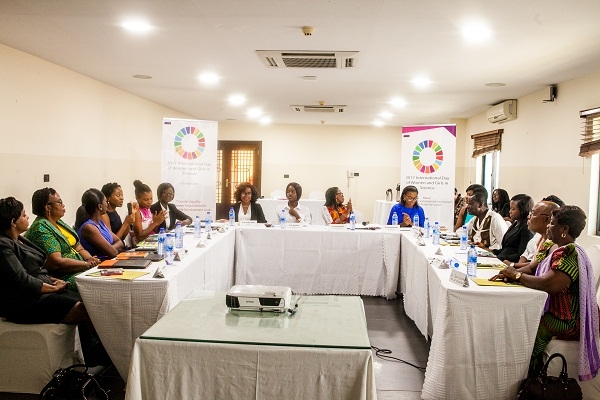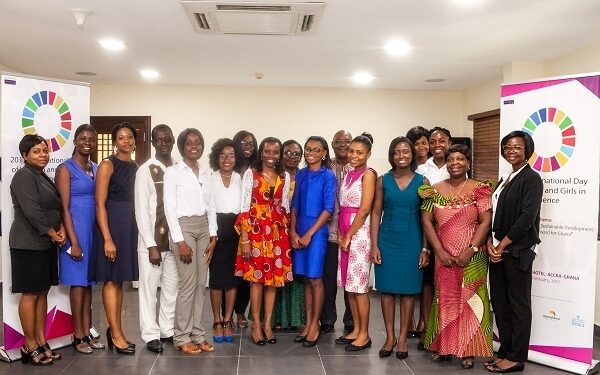As part of efforts to advance sustainable development through the achievement of gender equality and the empowerment of women and girls in science, Diplomatic Call in collaboration with UNESCO hosted a roundtable discussion to mark the 2017 International Day of Women and Girls in Science in Ghana.
The United Nations General Assembly adopted resolution A/RES/70/212 (draft A/70/474/Add.2) declaring 11 February of every year as the International Day of Women and Girls in Science.
The roundtable discussion, on the theme “Gender, Science and Sustainable Development: the way forward” which focused on the challenges faced by females in science and the solutions to these challenges was held on the 8th of February at the Oak Plaza Hotel in Accra.
The discussion saw the participation of representatives of the Ministry of Education, Ministry of Gender, UNESCO, UNFPA, the Young Diplomats of Ghana and female science students from across tertiary institutions in the country. Dr. Elsie Effah Kaufmann, well-known as the quiz mistress for the National science and Maths Quiz, presided over the discussions as Moderator.
In his opening remarks, the Head and Country Representative of UNESCO, Mr. Tirso Dos Santos noted that science plays an important role for sustainable development, with women in science playing a more crucial role in ensuring that the world does not only survive but thrives.
He also expressed concerns about the worrying trend of fewer numbers of females pursuing science related careers; “which is the most important stage where the benefits of their involvement in science can be realized and felt by the world at large”.
He therefore called on the various scientific research institutions, technology and engineering companies in Ghana to systematically recruit, train and do all that is possible to empower and retain female scientists in these institutions and industries.

On his part, Mr. Andrew Director of STME of the Ghana Education Service acknowledged that the “Girls in Science Program” under the Ministry of Education has yielded some great results although there is still more to be done. Among various interventions to whip up the interest of girls in science by the ministry is the introduction of a mentorship program at the basic and high school levels.
From the discussions, it was unanimously agreed by all the participants that it was about time more efforts and resources were invested into encouraging females to enter STEM related fields.
It should however not end at the place of whipping up the interests of young females but a well-coordinated collaboration between government, civil society and the private sector to put measures in place to see that they attain great heights in their various disciplines.
International Day of Women and Girls in Science marked in Ghana
ADVERTISEMENT






